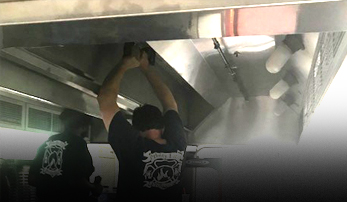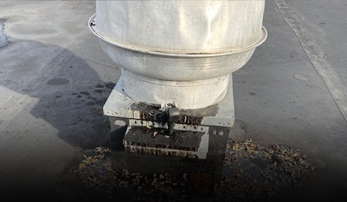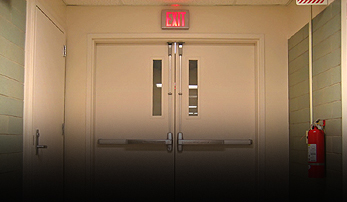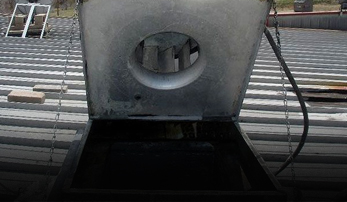Fractured States A Deep Look into Current us news and the Evolving American Story.
- Fractured States: A Deep Look into Current us news and the Evolving American Story.
- The Rise of Partisan Media and its Impact
- Decline of Local Journalism: A Crisis for Civic Engagement
- The Role of Social Media in Disseminating Information
- Challenges of Combating Misinformation
- The Evolving Economic Model of Journalism
- The Future of us news: Challenges and Opportunities
Fractured States: A Deep Look into Current us news and the Evolving American Story.
The landscape of us news is undergoing a dramatic transformation, shaped by forces ranging from political polarization to the relentless evolution of media consumption. Traditional news sources are grappling with declining trust and readership, while digital platforms struggle to combat the spread of misinformation and maintain journalistic integrity. This evolving story impacts not only how Americans receive information but also the very fabric of their civic engagement and understanding of the world around them. A deeper examination of these trends is crucial for navigating the challenges and opportunities that lie ahead, and for ensuring a well-informed and engaged citizenry.
Furthermore, the proliferation of social media has created echo chambers where individuals are primarily exposed to viewpoints that confirm their existing beliefs. This phenomenon exacerbates societal divisions and hinders productive dialogue. The changing economic models of journalism, with the decline of local news outlets, also contribute to a less informed public, leaving communities vulnerable to manipulation and a weakening of democratic processes. Understanding these complex interplays is paramount in assessing the current state of affairs.
The Rise of Partisan Media and its Impact
The mainstream media is facing a significant challenge: the rise of highly partisan news sources. These outlets, often catering to specific ideological groups, present information through a particular lens, contributing to a fractured media landscape. This bias isn’t necessarily malicious—it’s often a reflection of their target audience’s pre-existing beliefs—but it can severely limit exposure to diverse perspectives. The consequence is a public increasingly divided along political lines, where facts are often contested and alternative realities coexist. This trend directly impacts the ability of citizens to engage in constructive dialogue and find common ground, hindering effective governance and societal progress.
Decline of Local Journalism: A Crisis for Civic Engagement
Historically, local news organizations played a critical role in informing communities about issues directly impacting their lives – school board meetings, local elections, and public safety concerns. However, the decline of local newspapers and television news stations has created news deserts, leaving many communities without access to reliable local information. This vacuum is often filled by misinformation or a lack of awareness about important civic matters. This erosion of local reporting not only weakens democratic participation but also hinders accountability for local officials and institutions. Without robust local news coverage, corruption can flourish, and community needs may go unaddressed.
| Detroit | 6 | 2 | -67% |
| Cleveland | 4 | 1 | -75% |
| Phoenix | 5 | 2 | -60% |
| Las Vegas | 3 | 1 | -67% |
The Role of Social Media in Disseminating Information
Social media platforms have become major sources of information for many Americans, particularly younger generations. While offering benefits like instant access to breaking news and diverse perspectives, these platforms are also susceptible to the spread of misinformation, propaganda, and conspiracy theories. Algorithms designed to maximize engagement often prioritize sensational or emotionally charged content, regardless of its accuracy. This creates echo chambers where users are primarily exposed to viewpoints that reinforce their existing beliefs. Media literacy is becoming increasingly important but is often lacking among those who rely heavily on social media for their news and information. The ease with which false information can spread online poses a significant threat to informed decision-making.
Challenges of Combating Misinformation
Combating misinformation on social media is a complex undertaking. Fact-checking organizations play a vital role in debunking false claims, but their efforts often struggle to keep pace with the sheer volume of misinformation circulating online. Platform policies aimed at curbing the spread of false content are often criticized as being too slow to implement or unfairly targeting certain viewpoints. The very nature of social media—its emphasis on rapid sharing and emotional engagement—makes it particularly susceptible to manipulation. Effective solutions require a multi-faceted approach, involving increased media literacy education, stronger platform policies, and enhanced cooperation between technology companies, journalists, and researchers.
Furthermore, the power of “deepfakes” – digitally manipulated videos that appear authentic – presents a new frontier in misinformation. These technologies can convincingly portray individuals saying or doing things they never actually did, making it increasingly difficult to discern truth from fabrication. Addressing this challenge requires not only technological solutions but also critical thinking skills and a healthy skepticism towards online content. Ultimately, safeguarding against misinformation relies on an informed and discerning citizenry.
The spread of misinformation isn’t merely a technological problem; it’s a social and political one. The erosion of trust in traditional institutions, coupled with increasing polarization, creates an environment in which people are more likely to believe information that confirms their pre-existing biases, regardless of its accuracy. This underscores the importance of restoring public trust in journalism and promoting constructive dialogue across ideological divides.
The Evolving Economic Model of Journalism
The traditional advertising-based revenue model that long supported journalism has been severely disrupted by the shift to digital platforms. The rise of Google and Facebook as dominant players in the online advertising market has diverted advertising revenue away from news organizations. As a result, many news outlets have been forced to cut staff, reduce coverage, or even shut down entirely. Finding sustainable economic models for journalism is crucial for preserving its vital role in a democratic society. Experimentation with various approaches, such as paywalls, membership models, and philanthropic funding, is underway, but no single solution has yet emerged as universally successful.
- Paywalls: Restricting access to content behind a subscription fee.
- Membership Models: Encouraging direct financial support from readers.
- Philanthropic Funding: Seeking donations from foundations and individuals.
- Government Subsidies: A hotly debated topic with concerns regarding editorial independence.
- Non-profit Journalism: Establishing news organizations as tax-exempt entities.
The Future of us news: Challenges and Opportunities
Looking ahead, the future of us news will likely be shaped by ongoing technological advancements, evolving consumption habits, and the enduring challenges of maintaining trust and credibility. Artificial intelligence (AI) holds both promise and peril for the news industry. AI-powered tools can automate certain tasks, such as fact-checking and content curation, but they also raise concerns about algorithmic bias and the potential for AI to generate fake news. The development of innovative storytelling formats and the increased focus on data-driven journalism are other trends to watch. Ultimately, the survival and health of journalism depend on its ability to adapt to these changes while remaining committed to its core values – accuracy, fairness, and independence.
- Increased focus on media literacy education to help citizens critically evaluate information.
- Continued experimentation with sustainable economic models to support independent journalism.
- Development of ethical guidelines for the use of AI in newsgathering and reporting.
- Strengthening of platform policies to combat the spread of misinformation and disinformation.
- Renewed emphasis on local news coverage to address the needs of underserved communities.
Maintaining a free and vibrant press is essential for a functioning democracy. It necessitates a collective effort from journalists, platform providers, policymakers, and the public to safeguard the principles of accuracy, transparency, and accountability. The challenges are significant, but the stakes—the very future of an informed and engaged citizenry—are even higher. The American story isn’t static; it’s a relentlessly evolving narrative, and a free and competitive news ecosystem is paramount to understanding that story truthfully and completely.









Recent Comments